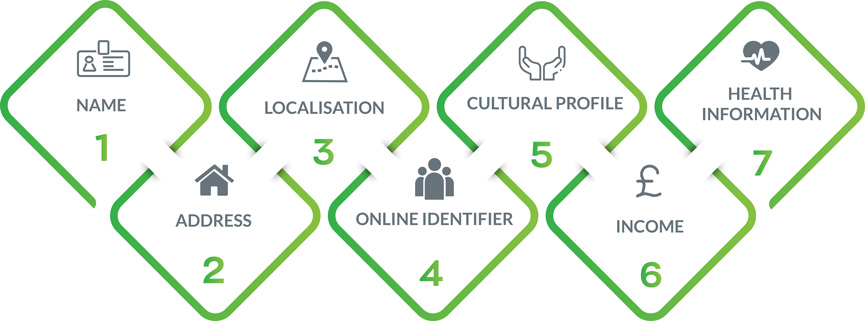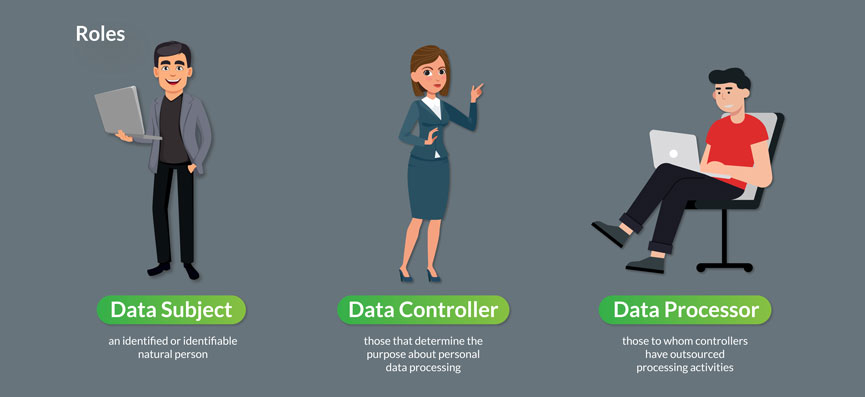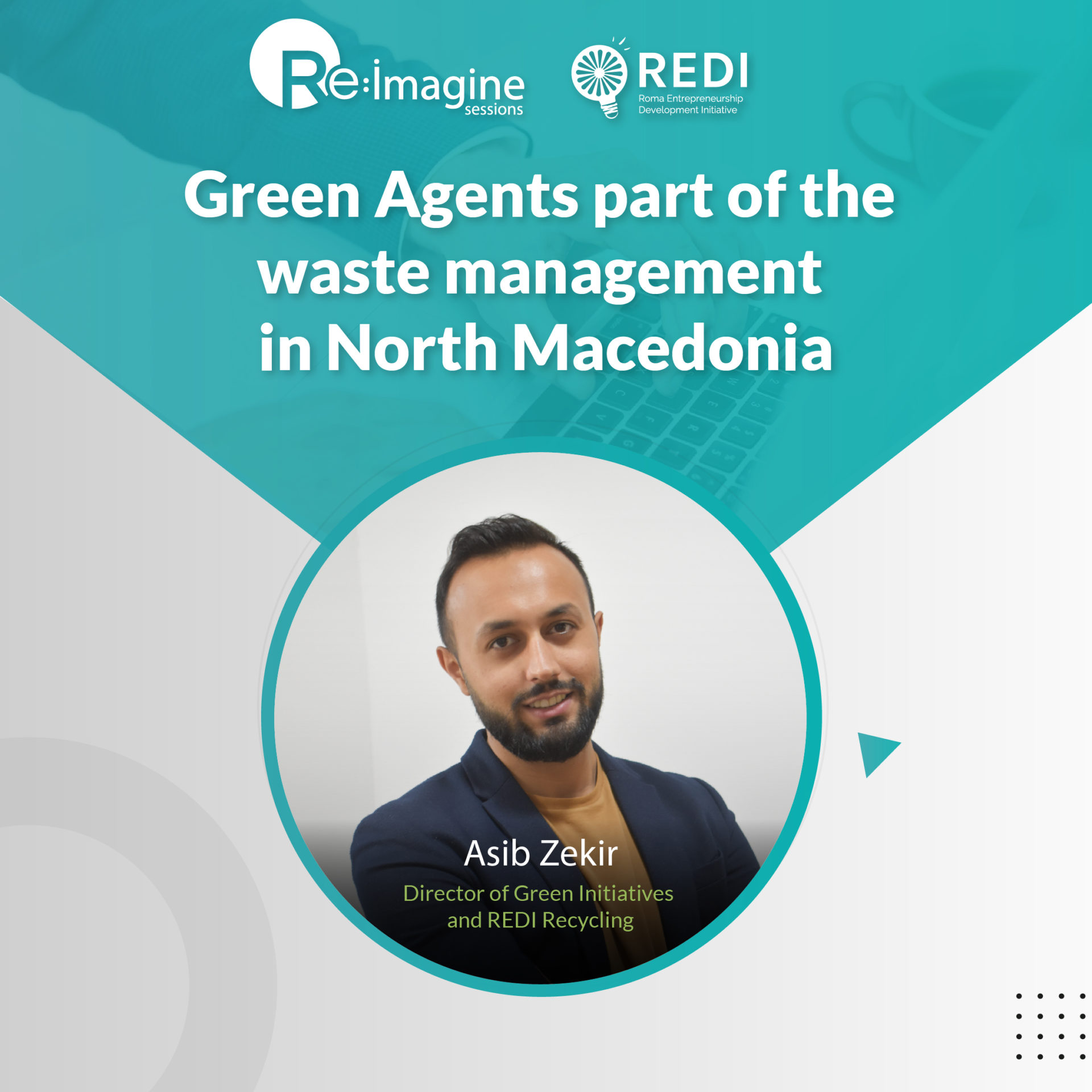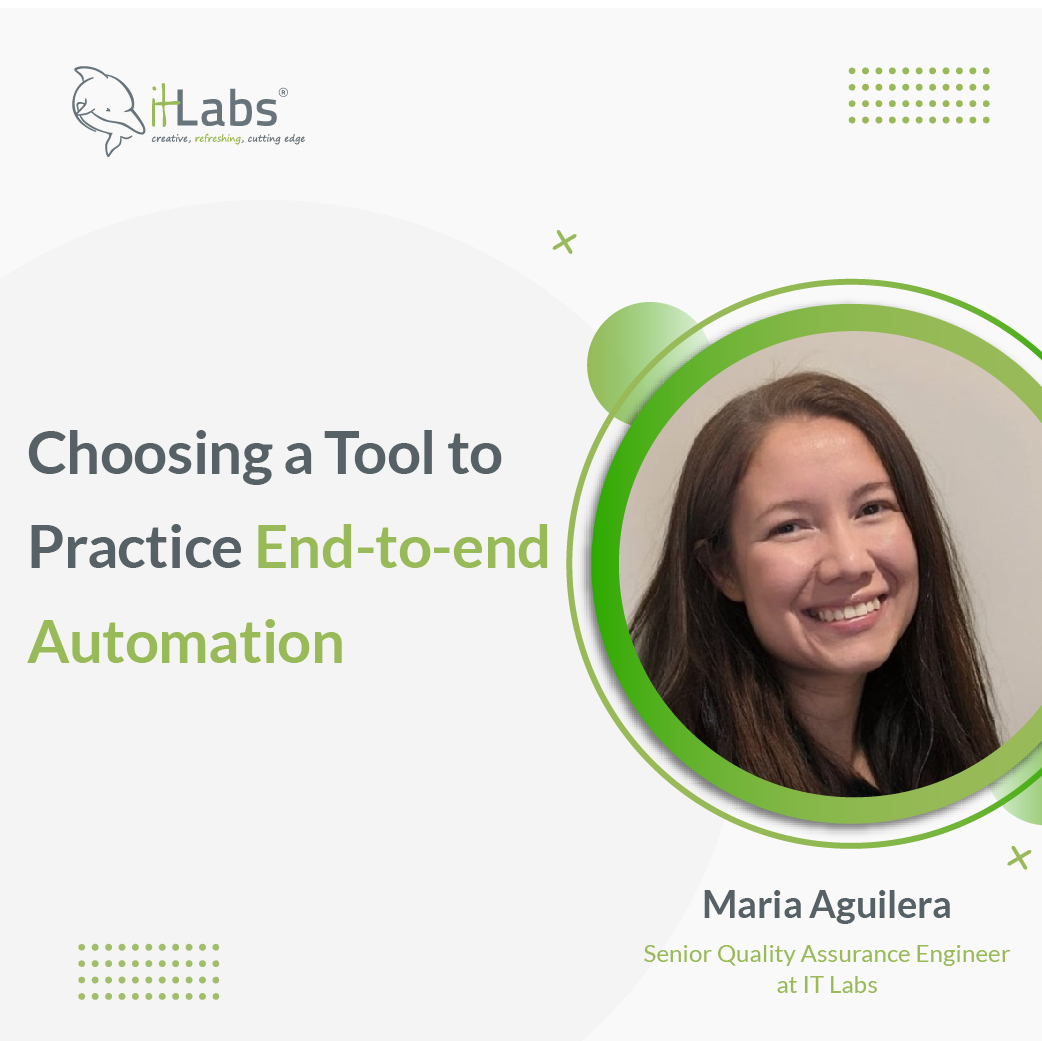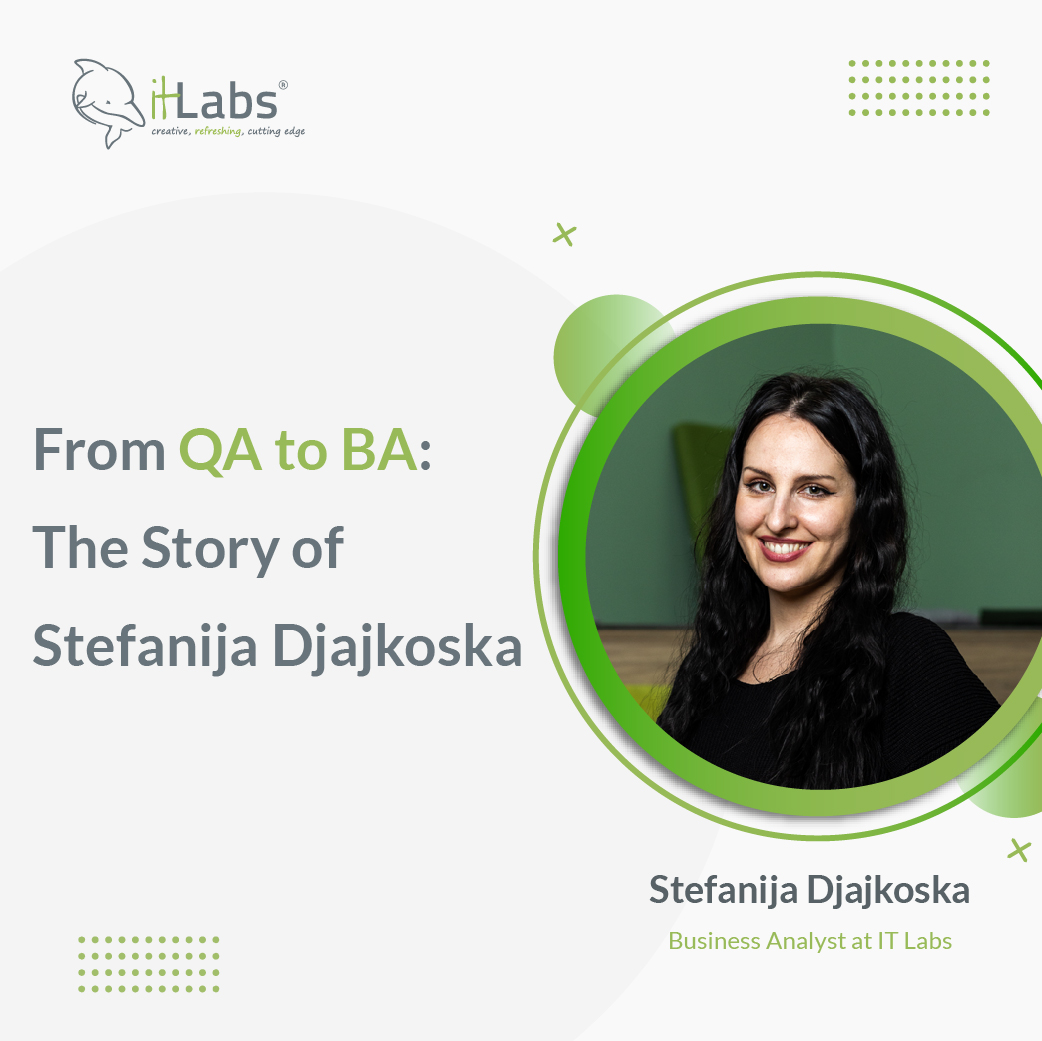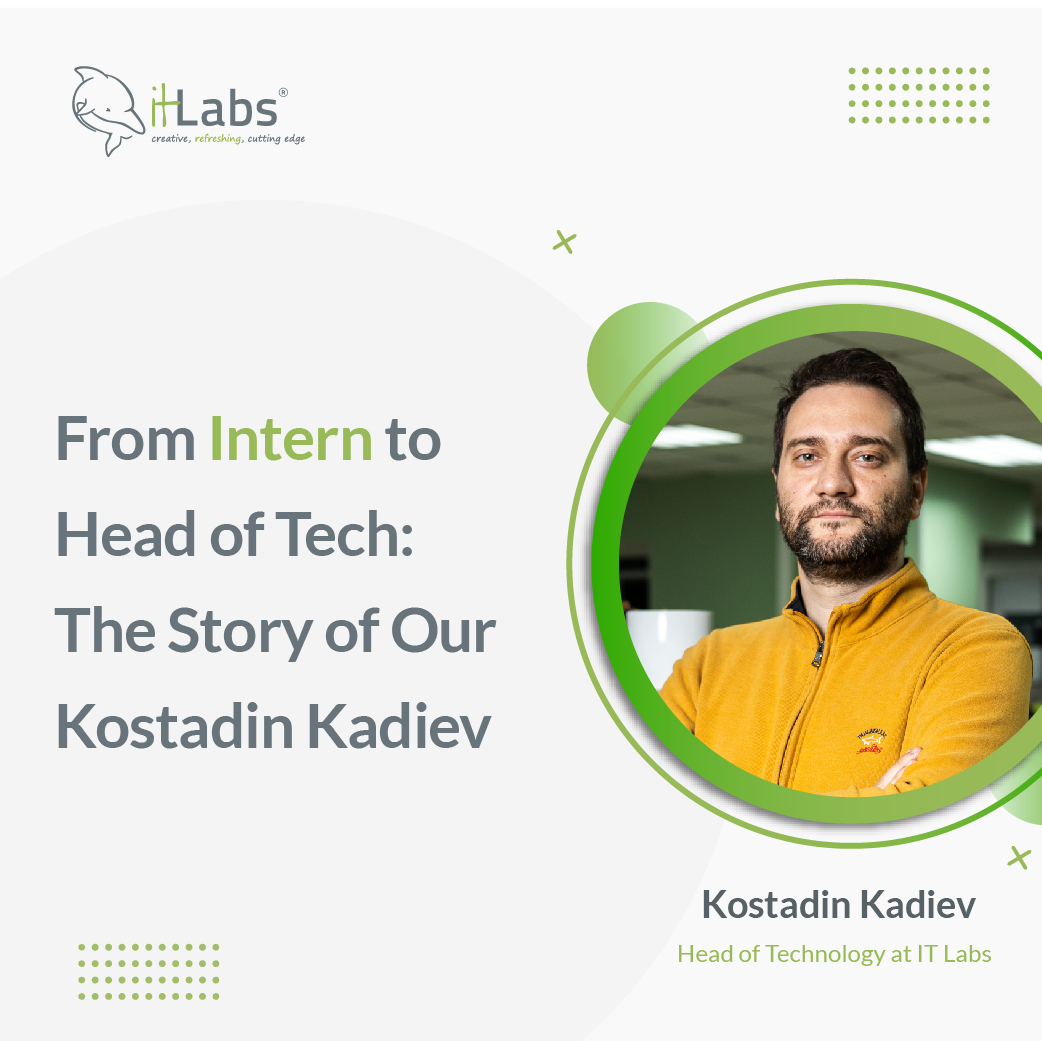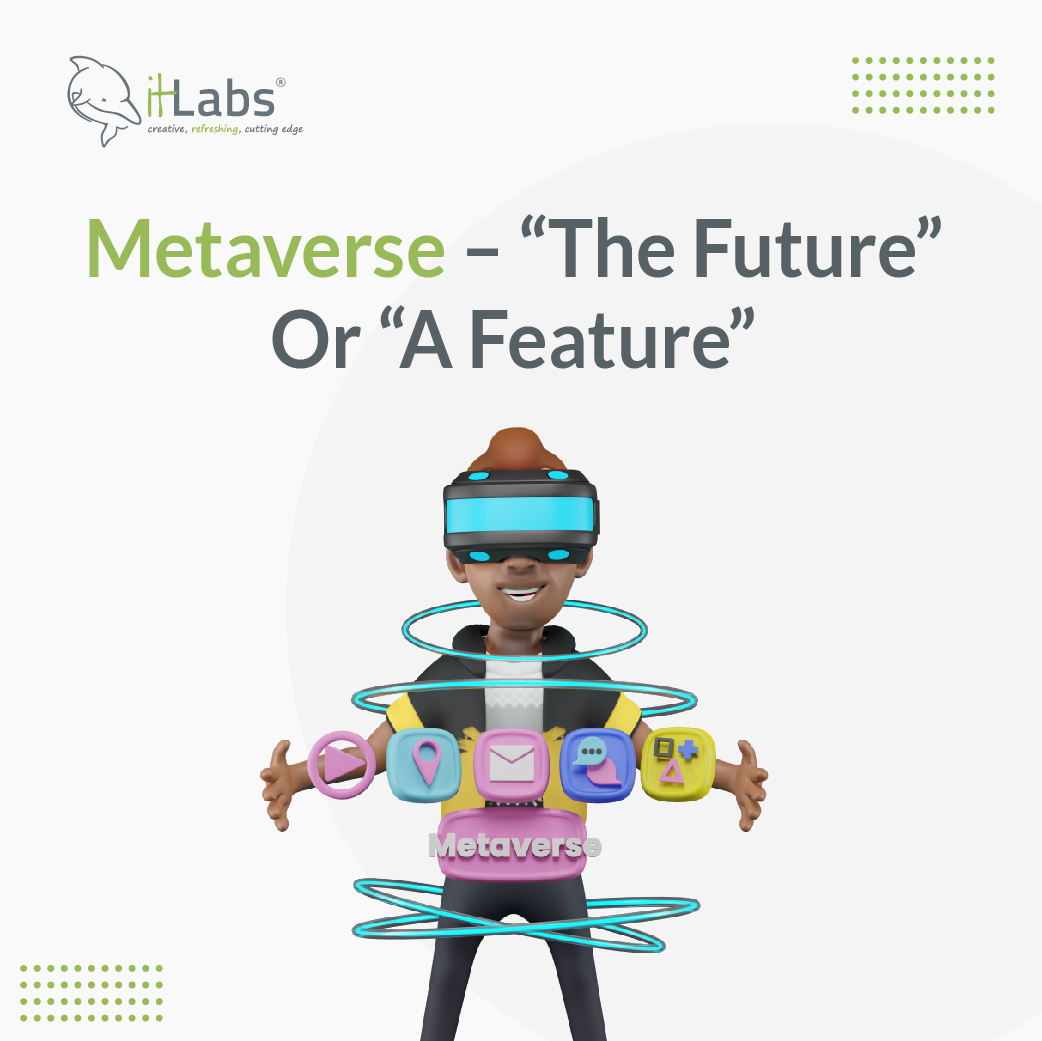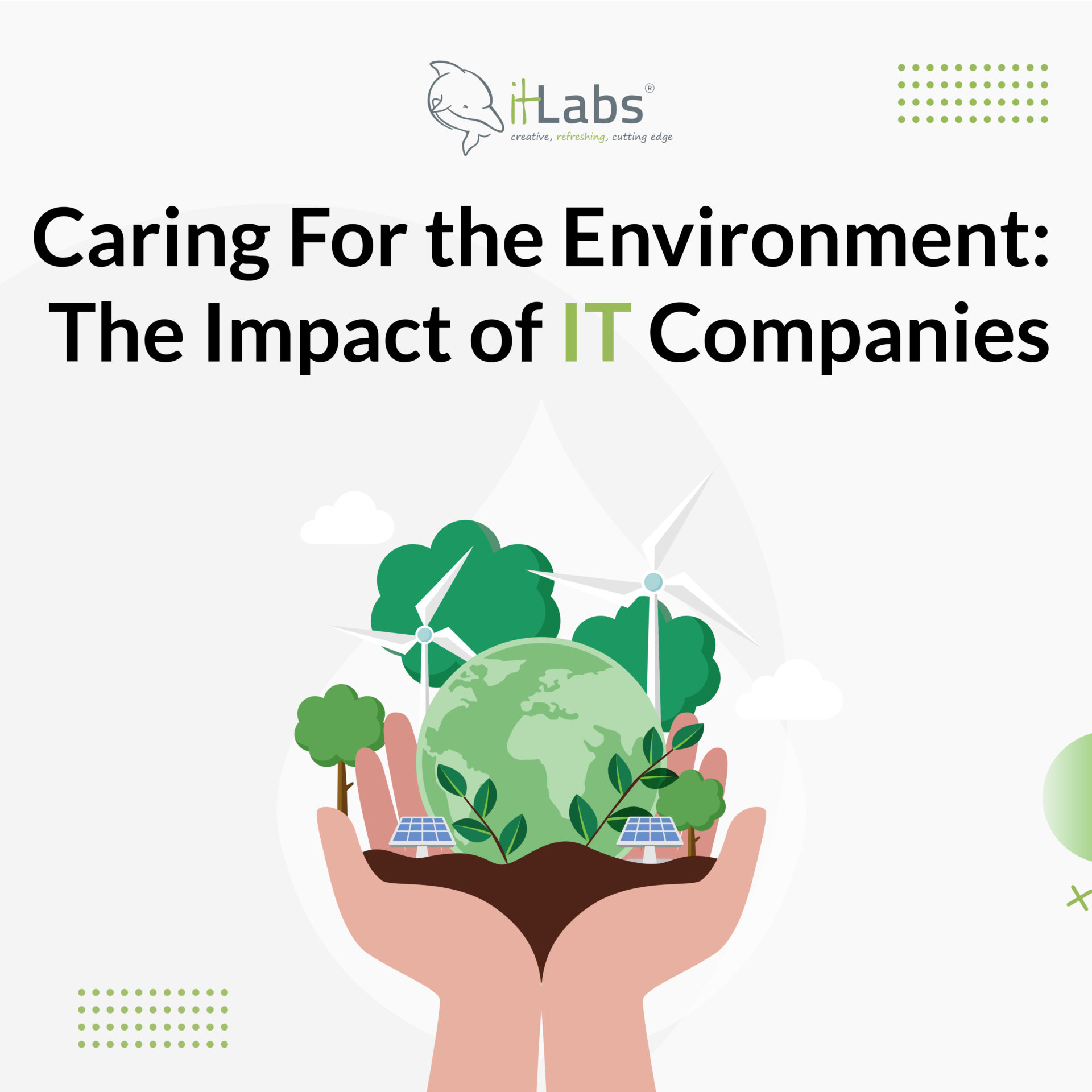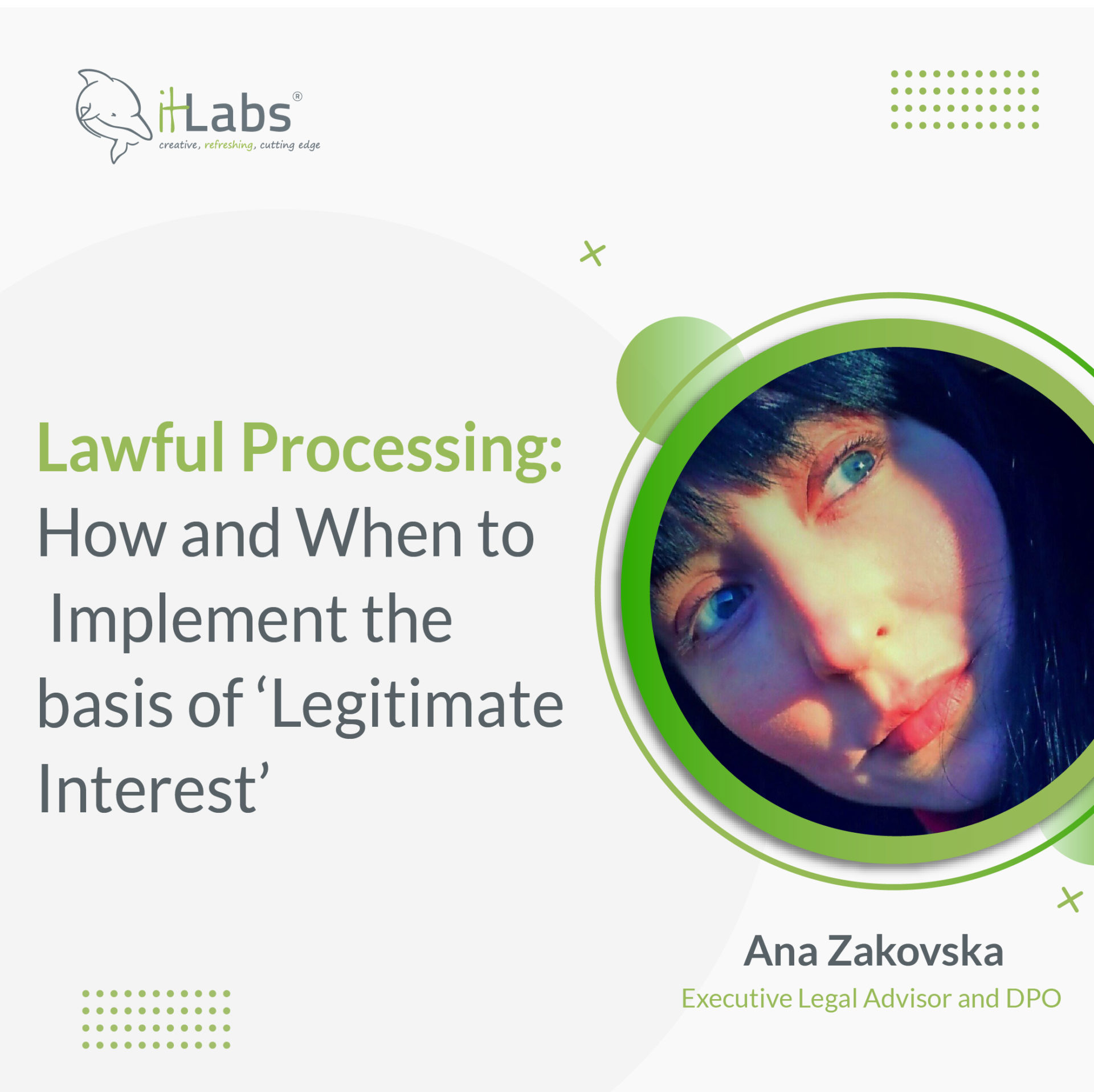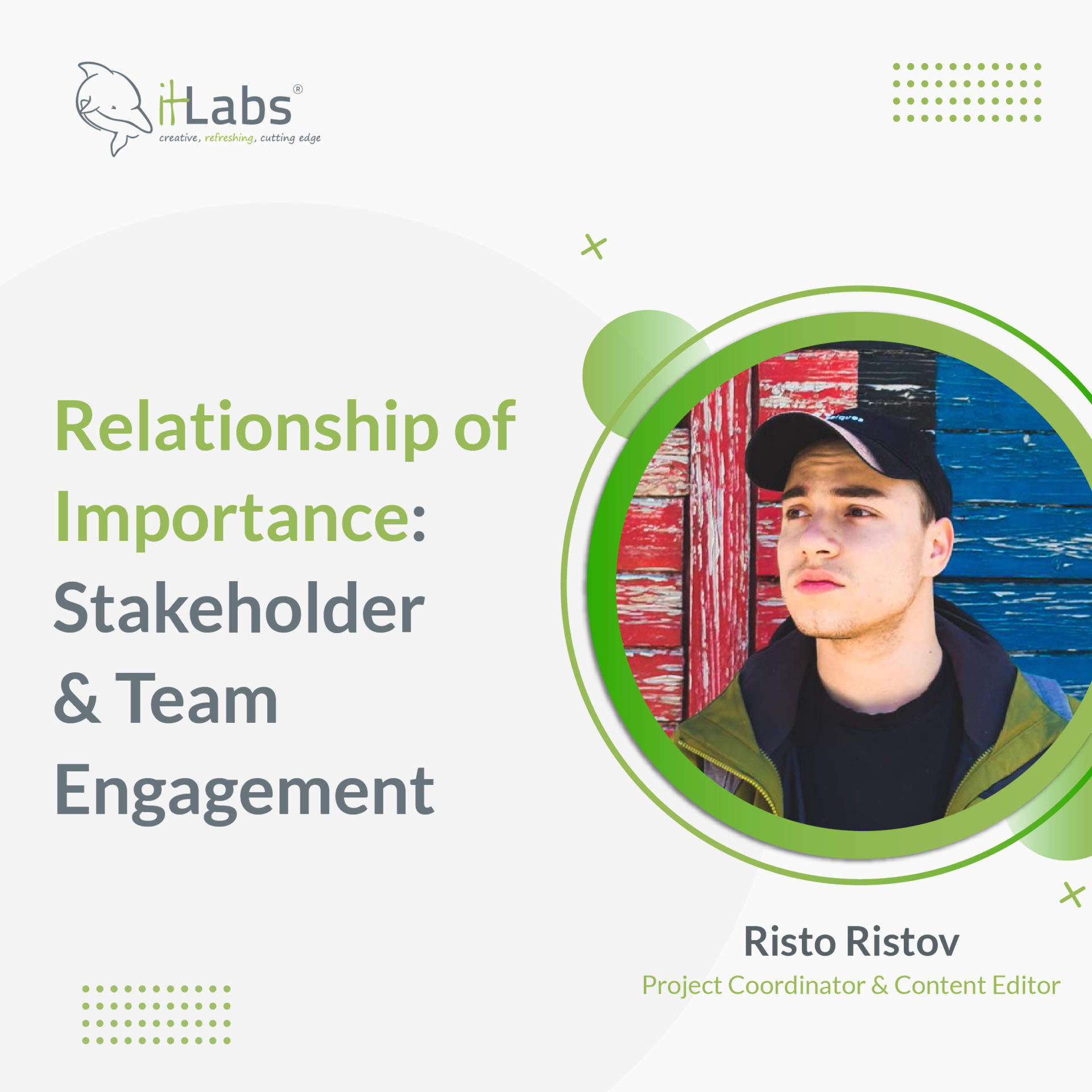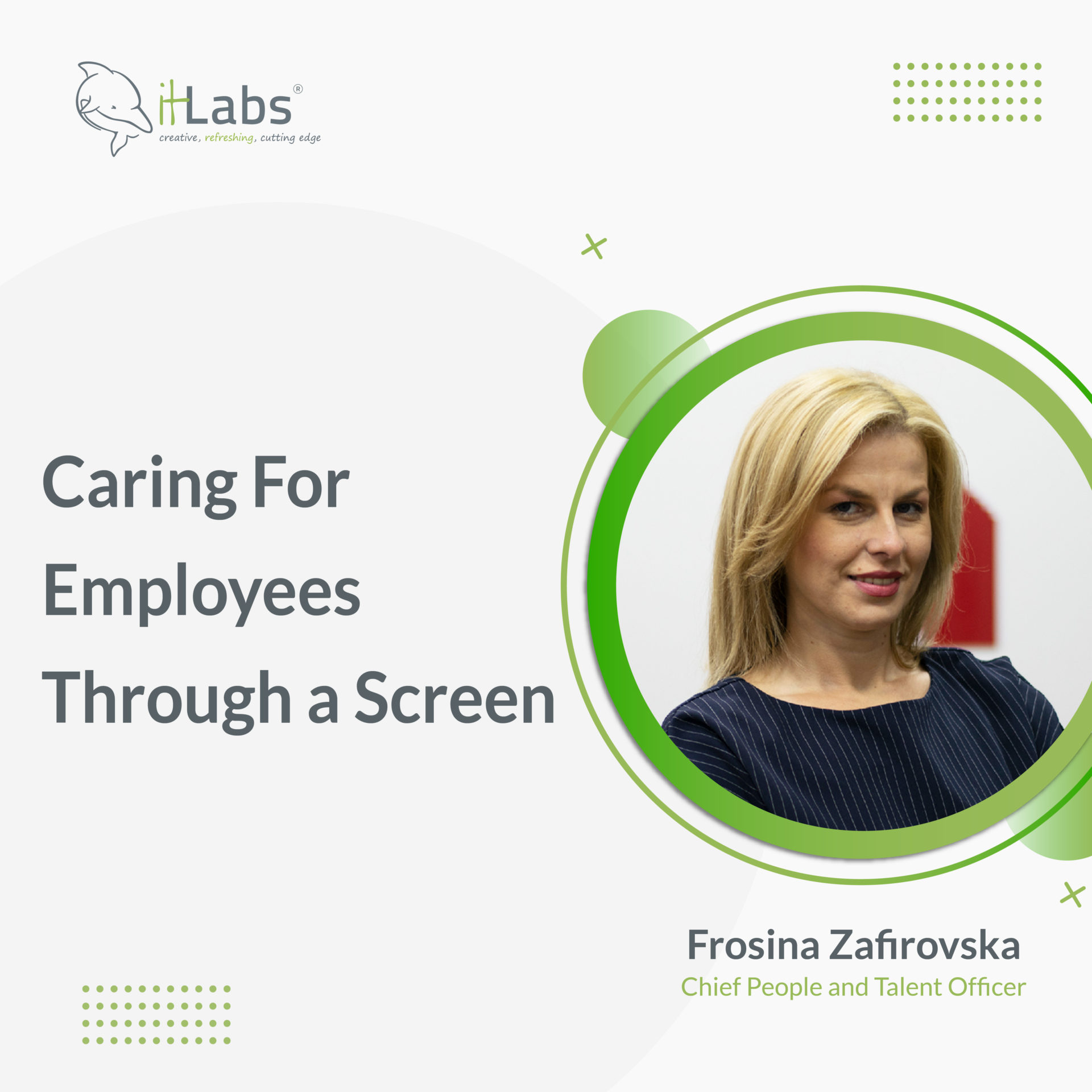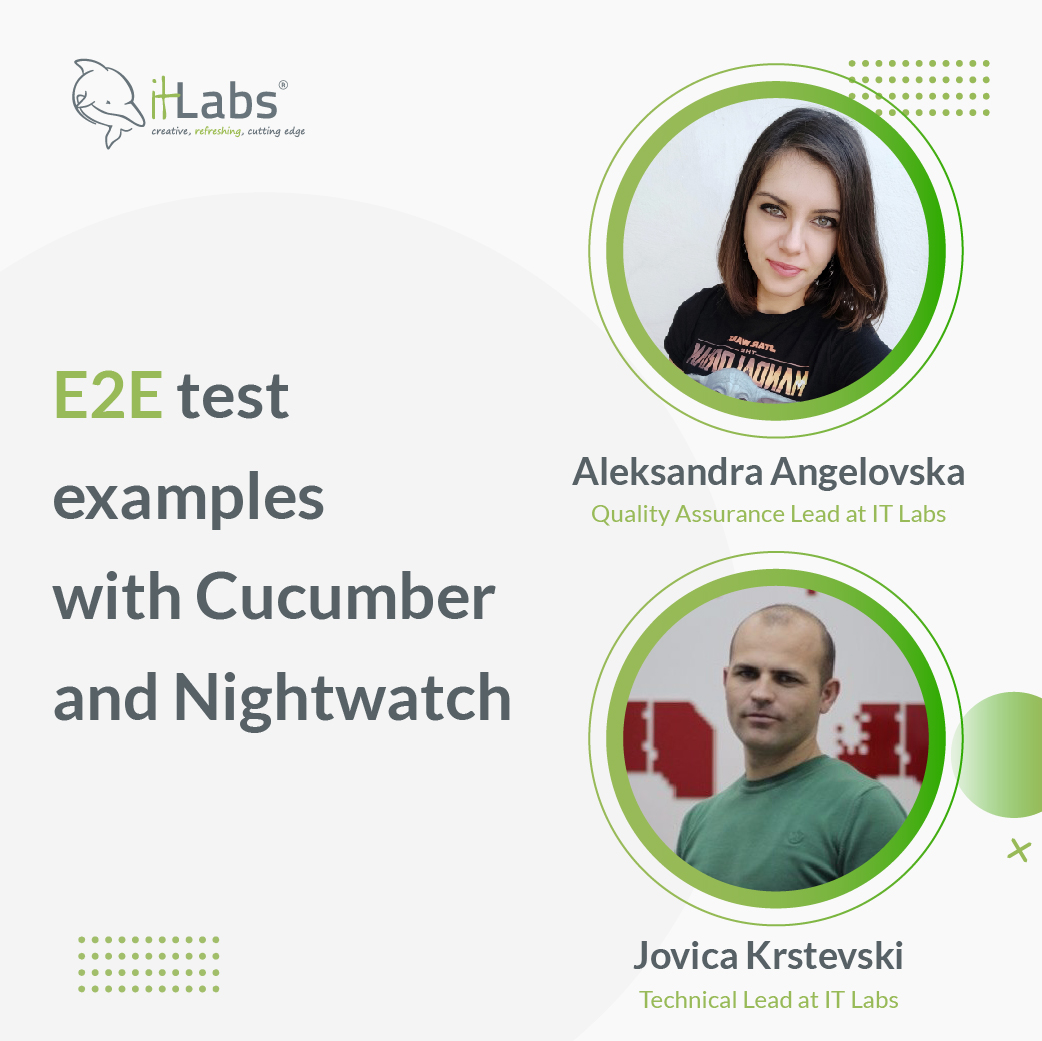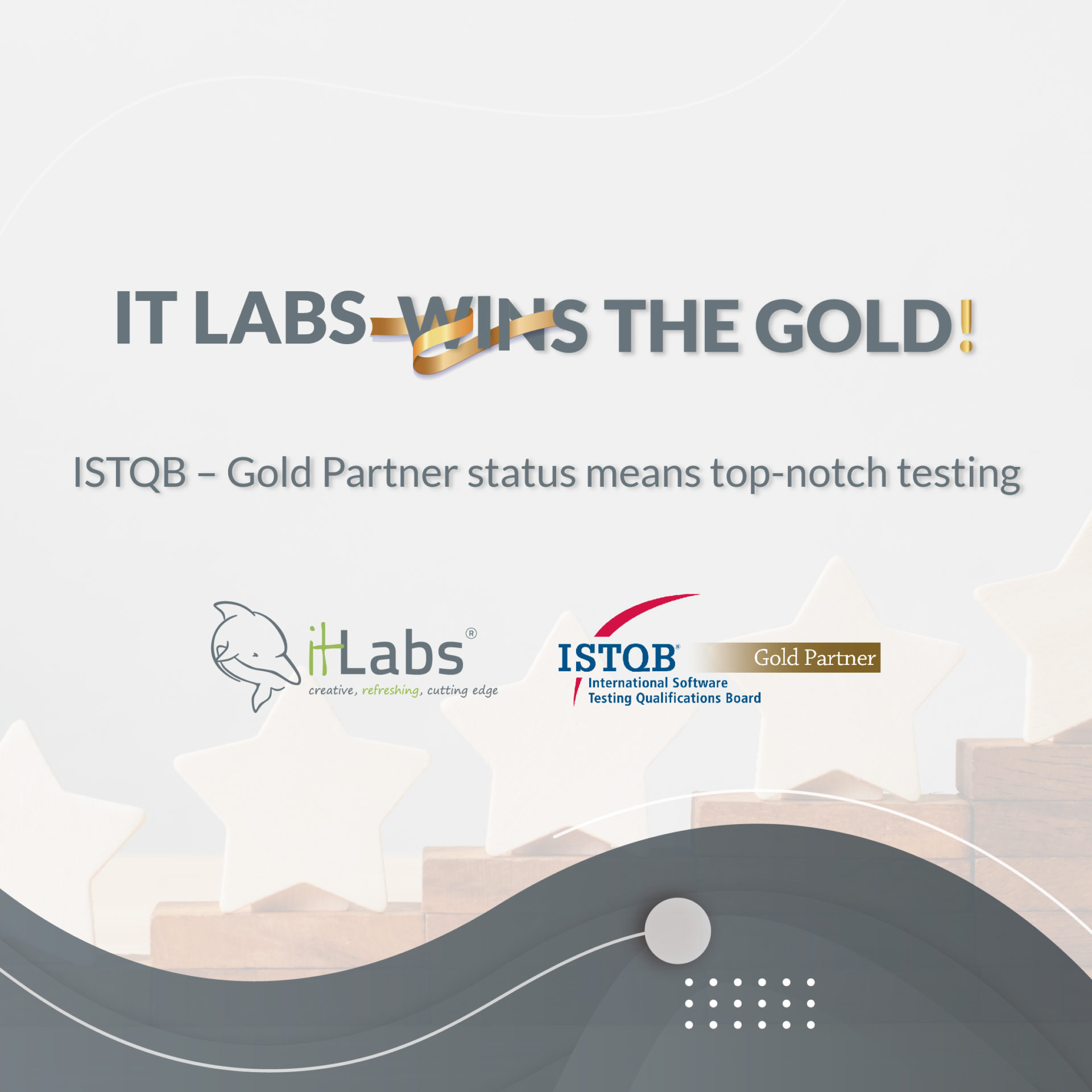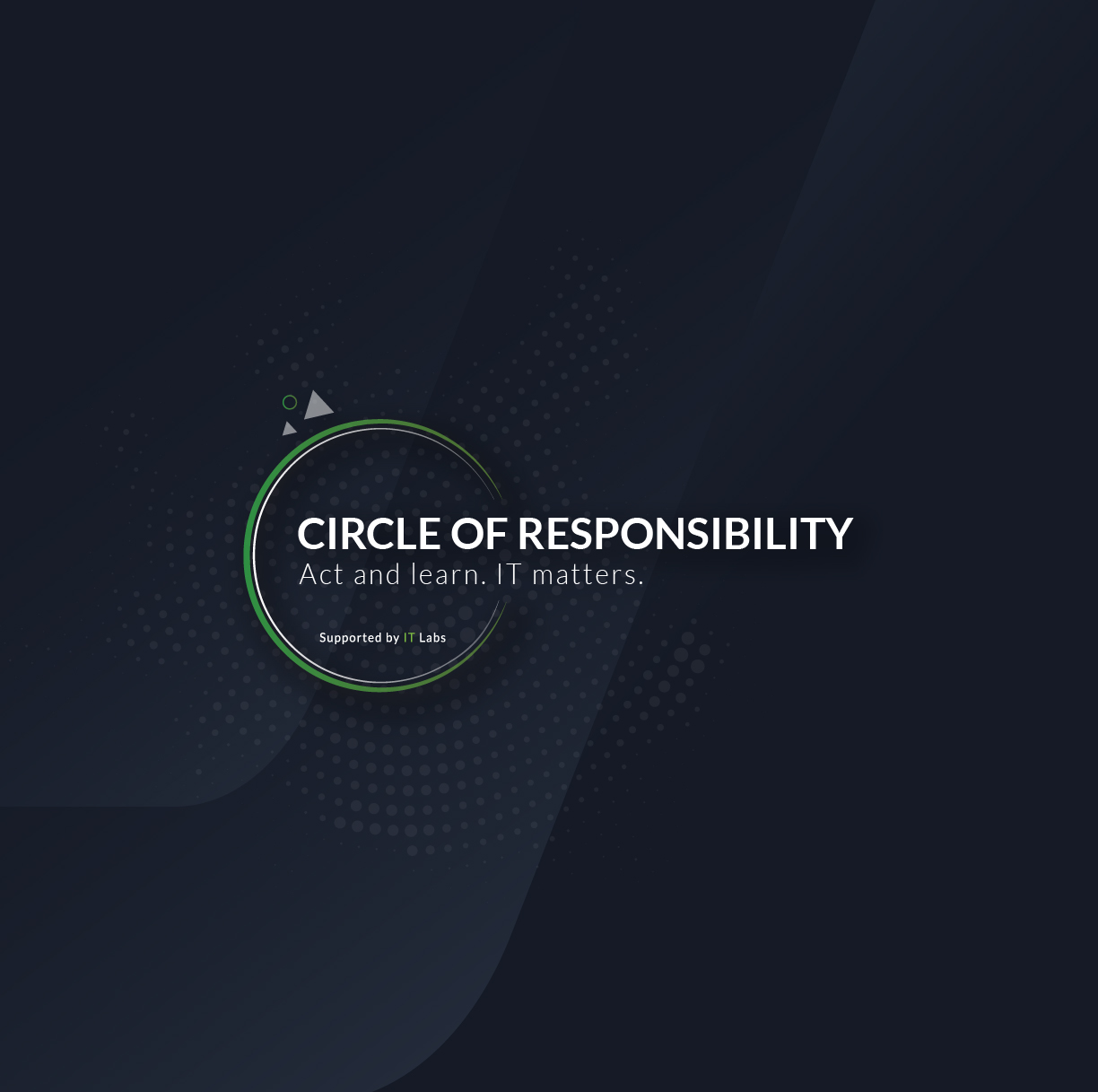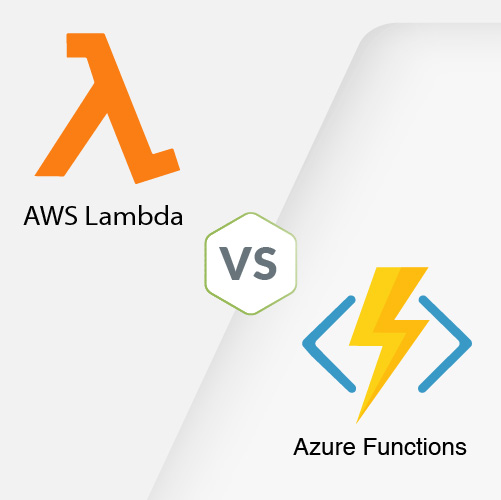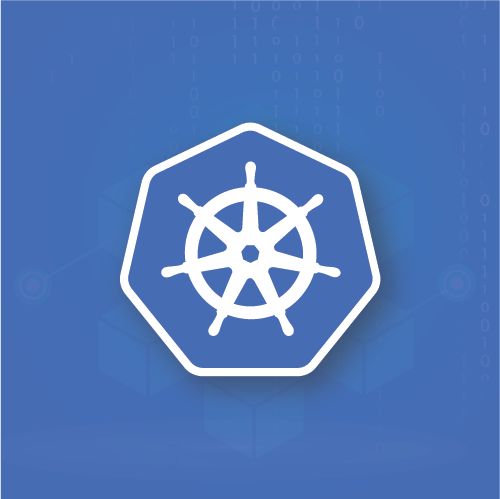
Maja Lazarovska
Prospecting Manager at IT Labs
The General Data Protection Regulation (GDPR) is an EU data privacy law that went into effect on May 25, 2018. It’s designed to give individuals more control over how their data is collected, used, and protected online. It also binds organizations to strict new rules about using and securing personal data they collect from people, including the mandatory use of technical safeguards like encryption and higher legal thresholds to justify data collection.
Application
Whom does the data protection law apply to?
The GDPR applies to:
- A company or entity which processes personal data as part of the activities of one of its branches established in the EU, regardless of where the data is processed; or
- A company established outside the EU and is offering goods/services (paid or for free) or is monitoring the behavior of individuals in the EU.
The law does not apply if the company is a service provider based outside the EU, or provides services to customers outside the EU. Its clients can use its services when they travel to other countries, including within the EU. Provided that the company doesn’t specifically target its services at individuals in the EU, it is not subject to the rules of the GDPR.
The protection offered by GDPR travels with the data, meaning that the rules protecting personal data continue to apply regardless of where the data lands. This also applies when data is transferred to a country which is not a member of the EU.
The rules only apply to personal data about individuals; they don’t govern data about companies or any other legal entities.
Does GDPR Apply to the US?
GDPR applies in the US, following the points described above – if the company offers goods or services to EU/EEA residents or if the company monitors the behavior of users inside the EU/EEA.
Moreover, if a data subject from the EU living in the US would fall under the GDPR should their personal data be processed by an EU established data controllers (an entity that makes decisions about processing activities) or data processors (the ones that process personal data on behalf of the controller). Conversely, a data subject from the EU living in the US would not fall under the GDPR should their personal data be processed by a purely US established data controllers or data processors.
Small and medium-sized enterprises
The rules apply to SME, but with exceptions. Companies with fewer than 250 employees don’t need to keep records of their processing activities unless processing of personal data is a regular activity, poses a threat to individuals’ rights and freedoms, or concerns sensitive data or criminal records.
Similarly, SMEs will only have to appoint a Data Protection Officer (DPO) if the processing is their main business, and it poses specific threats to the individuals’ rights and freedoms. This includes monitoring of individuals or processing of sensitive data, or criminal records, specially if it’s done on a large scale.
Principles
Key rules about data processing and conditions:
- Lawfulness, fairness, and transparency: personal data must be processed lawfully and transparently, ensuring fairness towards the individuals whose personal data is being processed. When data is obtained from another secondary company/organization, the primary company should provide the information (who, why, how long, etc.) to the person concerned at the latest, within one month after your company obtained the personal data;
- Purpose limitation: there must be specific purposes for processing the data, and the company must indicate those purposes to individuals when collecting their data, the company should explain in clear and plain language why they need it, how they’ll be using it, and how long they intend to keep it;
- Data minimization: the company must collect and process only the personal data that is necessary to fulfill that purpose. IT must be adequate, relevant, and within a limited scope of use;
- Accuracy: the company must ensure personal data is accurate and up-to-date, having regard to the purposes for which it is processed, and correct it if not;
- Compatibility: the company can’t further use the personal data for other purposes that aren’t compatible with the original purpose;
- Storage limitation: the company must ensure that personal data is stored for no longer than necessary for the purposes for which it was collected. The company should establish time limits to erase or review the data stored;
- Integrity and confidentiality: the company must install appropriate technical and organizational safeguards that ensure the security of personal data, including protection against unauthorized or unlawful processing and accidental loss, destruction or damage, using appropriate technology.
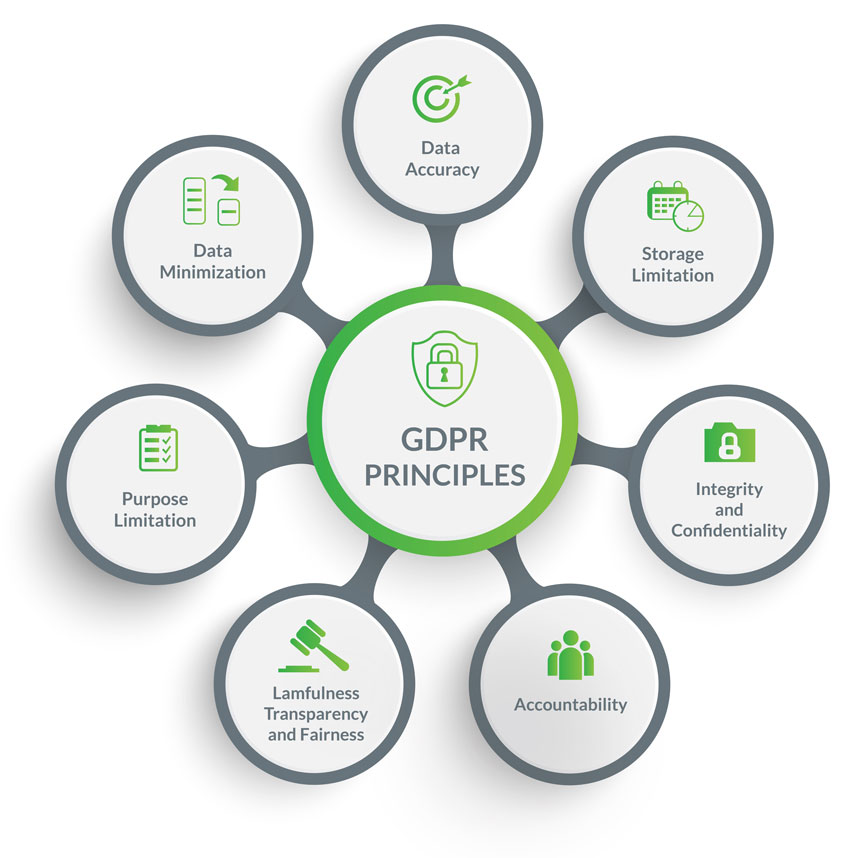 Legal grounds for processing data
Legal grounds for processing data
If consent is withdrawn, the company can no longer process the data. Once it has been withdrawn, the company needs to ensure that the data is deleted unless it can be processed on another legal ground (for example, storage requirements or as far as it is a necessity to fulfill the contract).
Obligations
Data controller and data processor
The data controller determines the purposes for which, and the means, by which personal data is processed. So, these are companies that decide ‘why’ and ‘how’ the personal data should be handled.
The company is considered as a joint controller, when together with one or more organizations, it jointly determines ‘why’ and ‘how’ personal data should be processed.
The data processor is usually a third party external company. The data processor processes personal data only on behalf of the controller. The duties of the processor towards the controller must be specified in a contract or another legal act.
Data breach
If a breach occurs, the company has to notify the supervisory authority without undue delay and at the latest within 72 hours after having become aware of the breach. If the company is a data processor, it must notify every data breach to the data controller.
Demonstrating GDPR compliance
It can be a Code of Conduct prepared by a business association that has been approved by a Data Protection Authorities (DPA). A Code of Conduct may be given EU-wide validity through an implementing act of the Commission.
It can be a certification mechanism operated by one of the certification bodies that have received accreditation from a DPA or a national accreditation body or both, as decided in each EU Member State.
GDPR and software development
Every new piece of software should be fully GDPR compliant. GDPR requires companies to safeguard their users’ data and protect their privacy rights. Companies that handle personal data of European users must build their systems and processes with data protection by design and by default. Proper security measures must be taken like firewalls, encryption, data backup, etc.
When a company decides to outsource some of its functions, it remains responsible for the personal data transferred to the outsourcing vendor. The only way for a company to avoid GDPR liability is to ensure that it cannot access any personally identifiable data under any circumstances, which is often impossible in practice.
In other words, the GDPR places a huge emphasis on documentation and transparency. Companies must be able to clearly describe what data they are collecting, for what purpose, for how long, and who can access them, among other things. It’s important to share relevant documents, in order to be able to prove that the necessary steps for GDPR are taken.
While the GDPR doesn’t require companies that collect data from EU citizens to provide their users with automated, real-time tools for data management, it’s in every company’s best interest to do so. Without automated data management capabilities, each data-related request would have to be followed by a lengthy identity verification process to prevent data breaches.
Key requirements
- Pseudonymization by Default: Pseudonyms must be created for each individual, and data about the person’s identity should be stored in an area that is fully partitioned and separate from other user data. Such as information on the individual’s account within an app or software platform.
- The Right to Be Forgotten: Every EU citizen has “the right to be forgotten,” meaning that, upon request, companies are required to discard any and all personal data related to a particular individual. Therefore, the software or database should include tools that let you isolate and delete personal data as needed.
- The Right to Be Portable: Under this requirement, users must retain the ability to transfer their personal data from one service provider to another service provider. The company needs to configure the software, so it allows users to do so.
- Mandatory Data Breach Reporting: If there is a data breach, the company is required to inform users and law enforcement within 72 hours. This means the company must detect a data breach in a very short order. When developing software or a mobile app, it’s generally best to maximize security measures and include a security breach detection and reporting tool that can send notifications to the tech team.
- Privacy by Design: GDPR requires privacy by default, meaning that the software, mobile app, or website must, by default, provide users with the highest level of security and privacy. For instance, instead of automatically using a person’s name or email address as their username, the software should offer up a totally random username during the account creation process.
- Informed Consent: Users must be allowed to provide informed consent for the collection and processing of their data. This is why so many privacy-related disclaimer panels have popped up on websites, software platforms, and mobile apps in recent months. Another example of informed consent applies to tickboxes when registering for an account. In most cases, tick boxes should not be ticked by default; the user must tick them manually.
Compliance checklists
- What information do I really need?
- Why am I saving it?
- Why am I archiving this information instead of just erasing it?
- What am I trying to achieve by collecting all of this personal information?
Dealing with citizens
- Individuals may contact the company to exercise their rights under the GDPR (rights of access, rectification, erasure, portability, etc.).
- The company must reply to their request without undue delay, and in principle, within one month of receipt of the request.
- Dealing with requests of individuals should be carried out free of charge.
- The company must provide the individual with a copy of their personal data free of charge.
- The GDPR gives individuals the right to ask for their data to be deleted and organizations do have an obligation to do so, except if the data is needed to exercise the right of freedom of expression, the company has a legal obligation to keep it, or it keeps it for reasons of public interest;
- Individuals have the right to object to the processing of personal data for specific reasons. Whether such a particular situation exists must be examined on a case-by-case basis.
- Individuals have the right to data portability, which is to receive from the company the personal data they provided in a structured, machine-readable format, and have it transmitted to another company/organization.
- Individuals should not be subject to a decision that is based solely on automated processing (such as algorithms), and that is legally binding or which significantly affects them.
Enforcement and sanctions
The company does not need to notify the DPA (Data Protection Authority) that it processes data. However, prior consultation with the DPA is required when a DPIA indicates that the processing of the data would pose a high risk, and residual risks remain despite the implementation of several safeguards. Your company/organization would also need to contact the DPA in the case of a data breach.
In case of non-compliance with the data protection rules infringement: the possibilities include a reprimand, a temporary or definitive ban on processing, and a fine of up to €20 million or 4% of the business’s total annual worldwide turnover.
References
https://ec.europa.eu/info/law/law-topic/data-protection/reform/rules-business-and-organisations
https://gdpr.eu/companies-outside-of-europe/?cn-reloaded=1
https://brainhub.eu/blog/gdpr-secure-software-development-practices/
https://seventablets.com/blog/how-to-ensure-gdpr-compliance-for-software-development-projects/
https://www.datatilsynet.no/en/about-privacy/virksomhetenes-plikter/innebygd-personvern/data-protection-by-design-and-by-default/?print=true
Maja Lazarovska
Prospecting Manager at IT Labs


